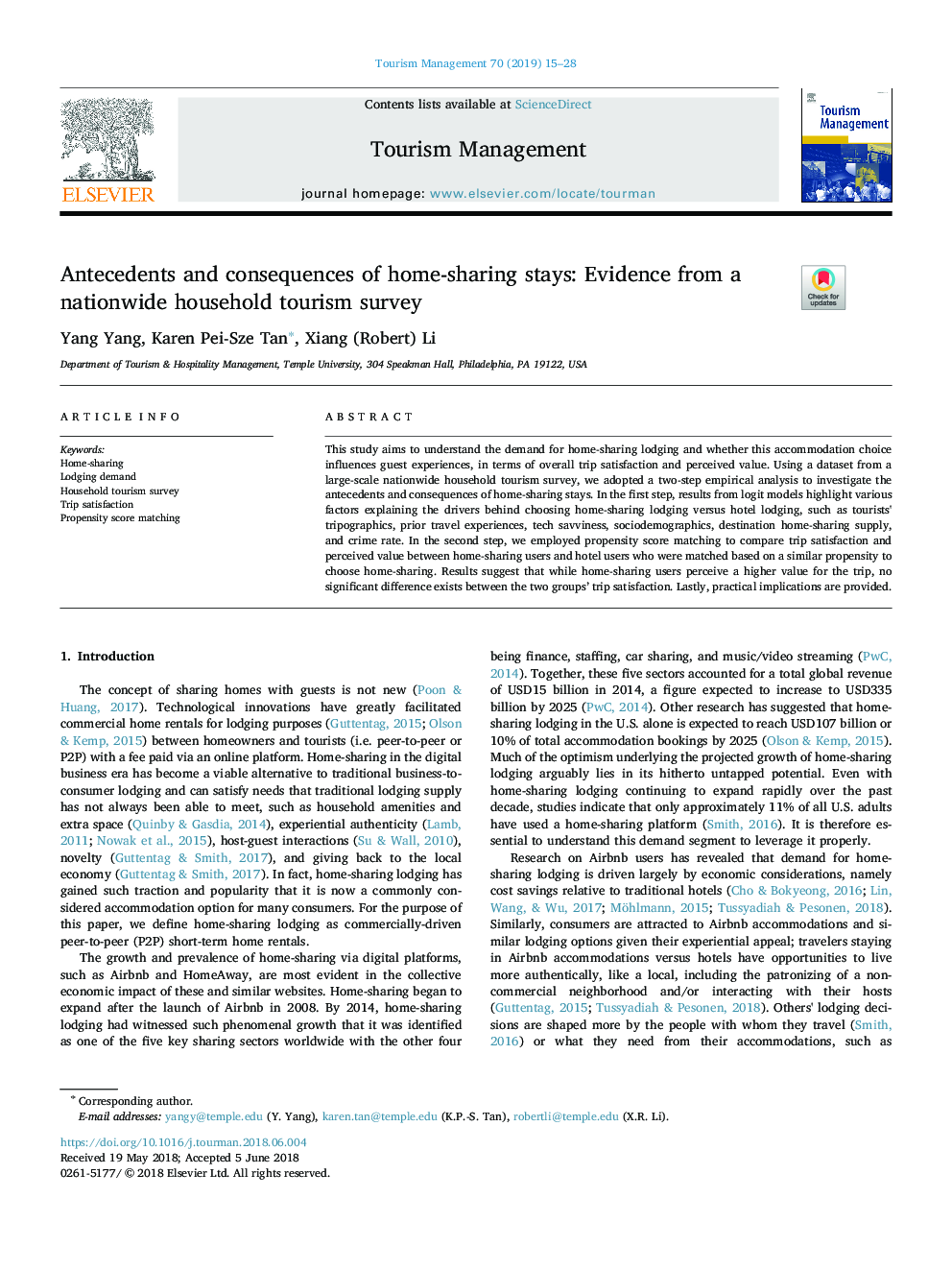| Article ID | Journal | Published Year | Pages | File Type |
|---|---|---|---|---|
| 7420477 | Tourism Management | 2019 | 14 Pages |
Abstract
This study aims to understand the demand for home-sharing lodging and whether this accommodation choice influences guest experiences, in terms of overall trip satisfaction and perceived value. Using a dataset from a large-scale nationwide household tourism survey, we adopted a two-step empirical analysis to investigate the antecedents and consequences of home-sharing stays. In the first step, results from logit models highlight various factors explaining the drivers behind choosing home-sharing lodging versus hotel lodging, such as tourists' tripographics, prior travel experiences, tech savviness, sociodemographics, destination home-sharing supply, and crime rate. In the second step, we employed propensity score matching to compare trip satisfaction and perceived value between home-sharing users and hotel users who were matched based on a similar propensity to choose home-sharing. Results suggest that while home-sharing users perceive a higher value for the trip, no significant difference exists between the two groups' trip satisfaction. Lastly, practical implications are provided.
Keywords
Related Topics
Social Sciences and Humanities
Business, Management and Accounting
Strategy and Management
Authors
Yang Yang, Karen Pei-Sze Tan, Xiang (Robert) Li,
